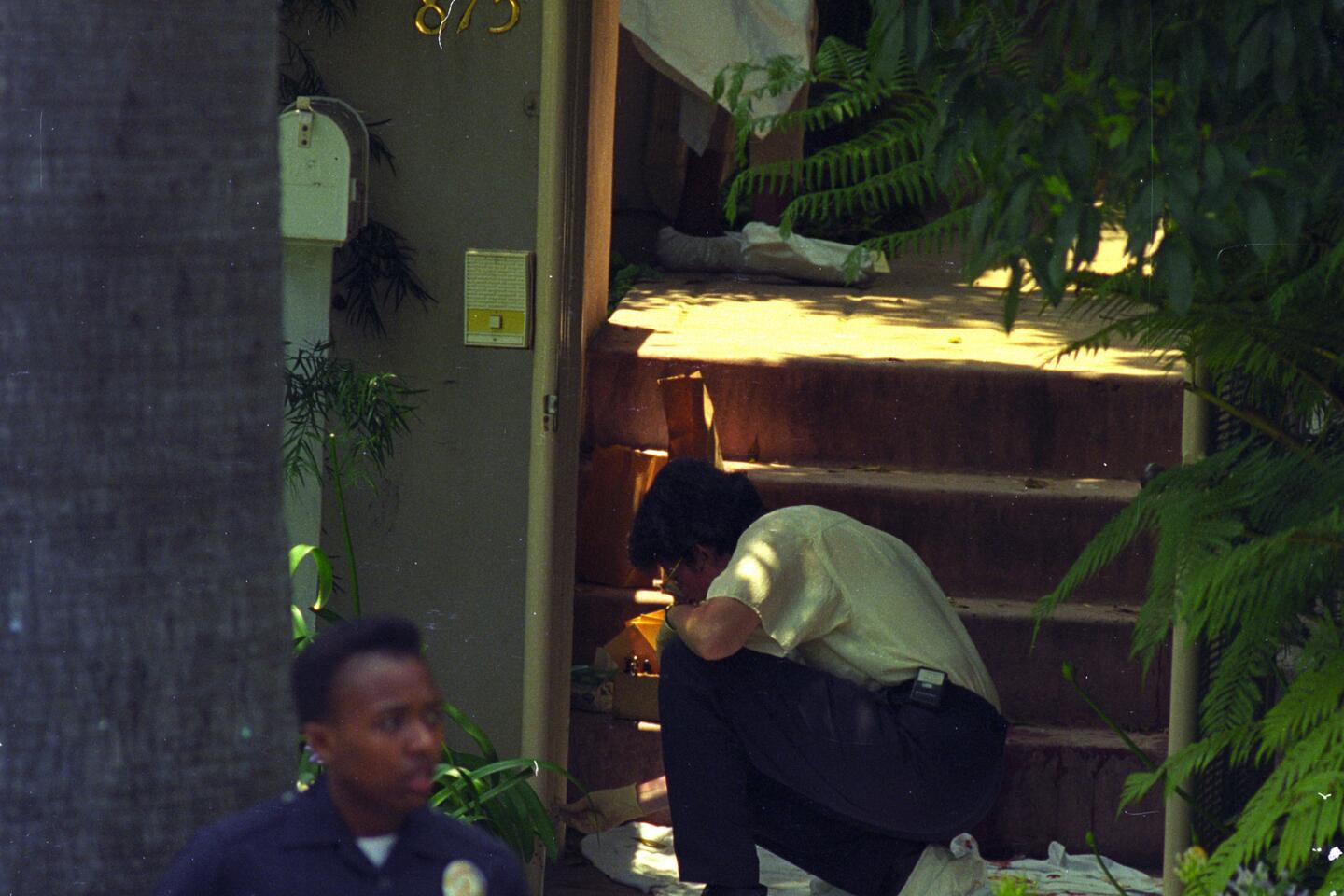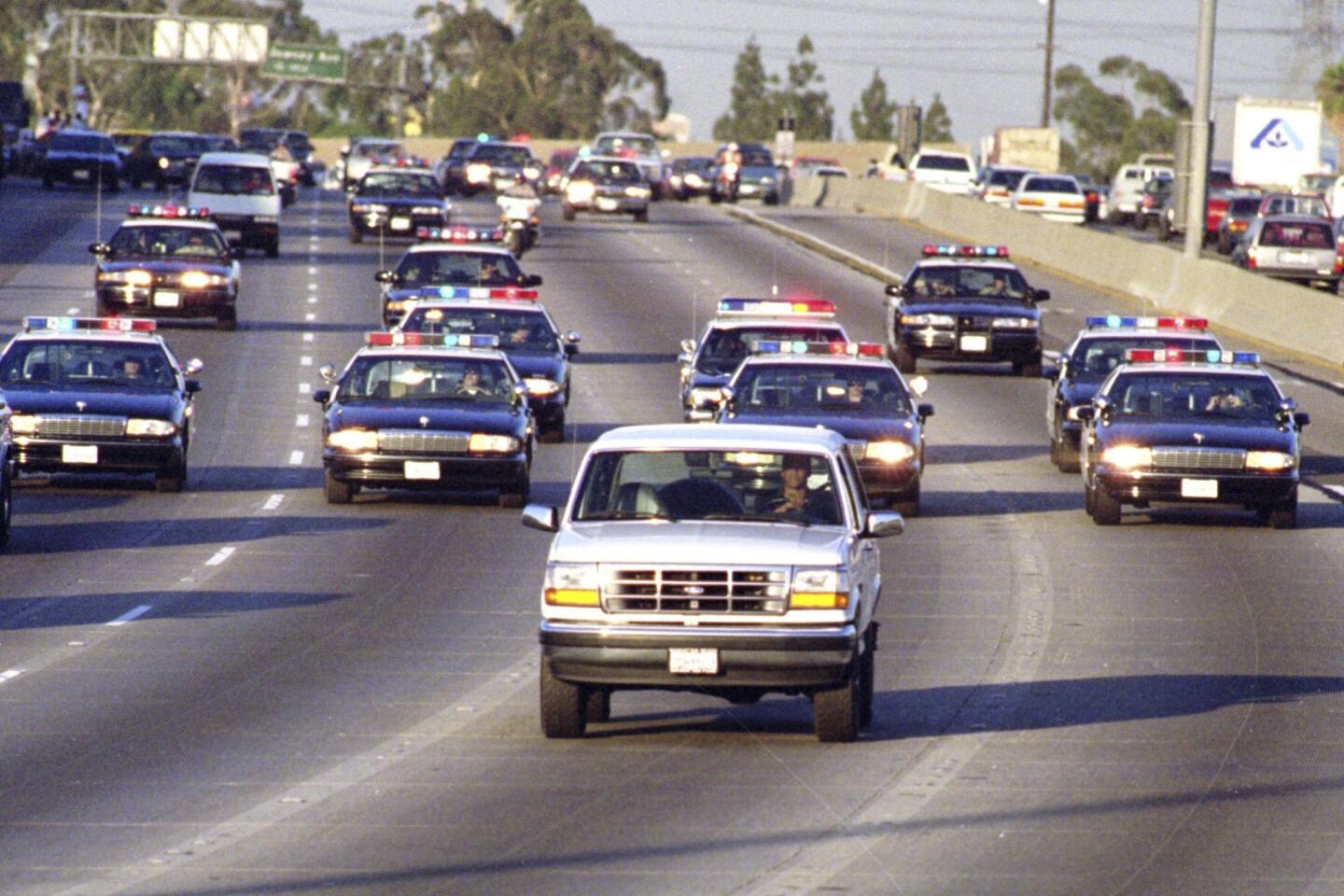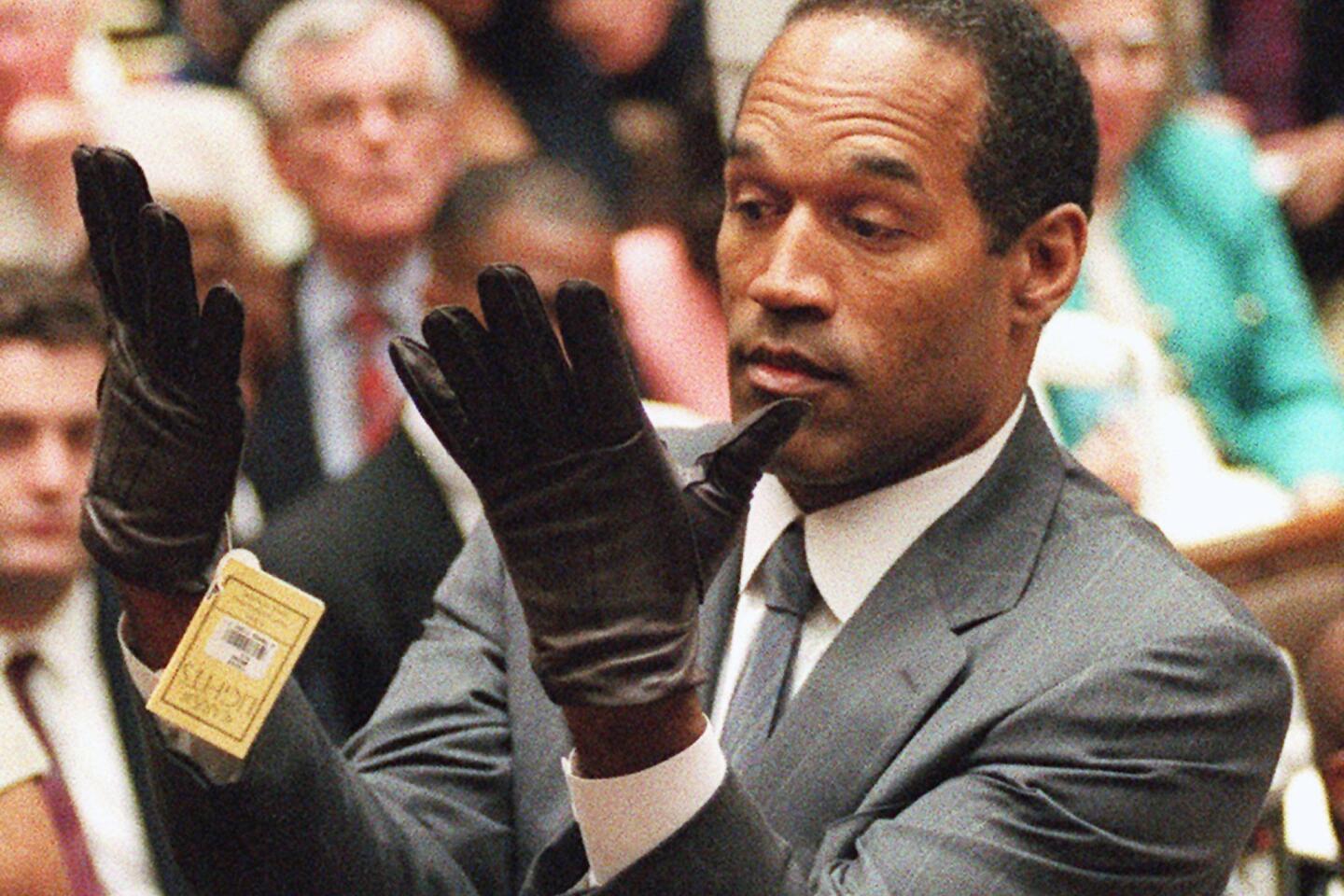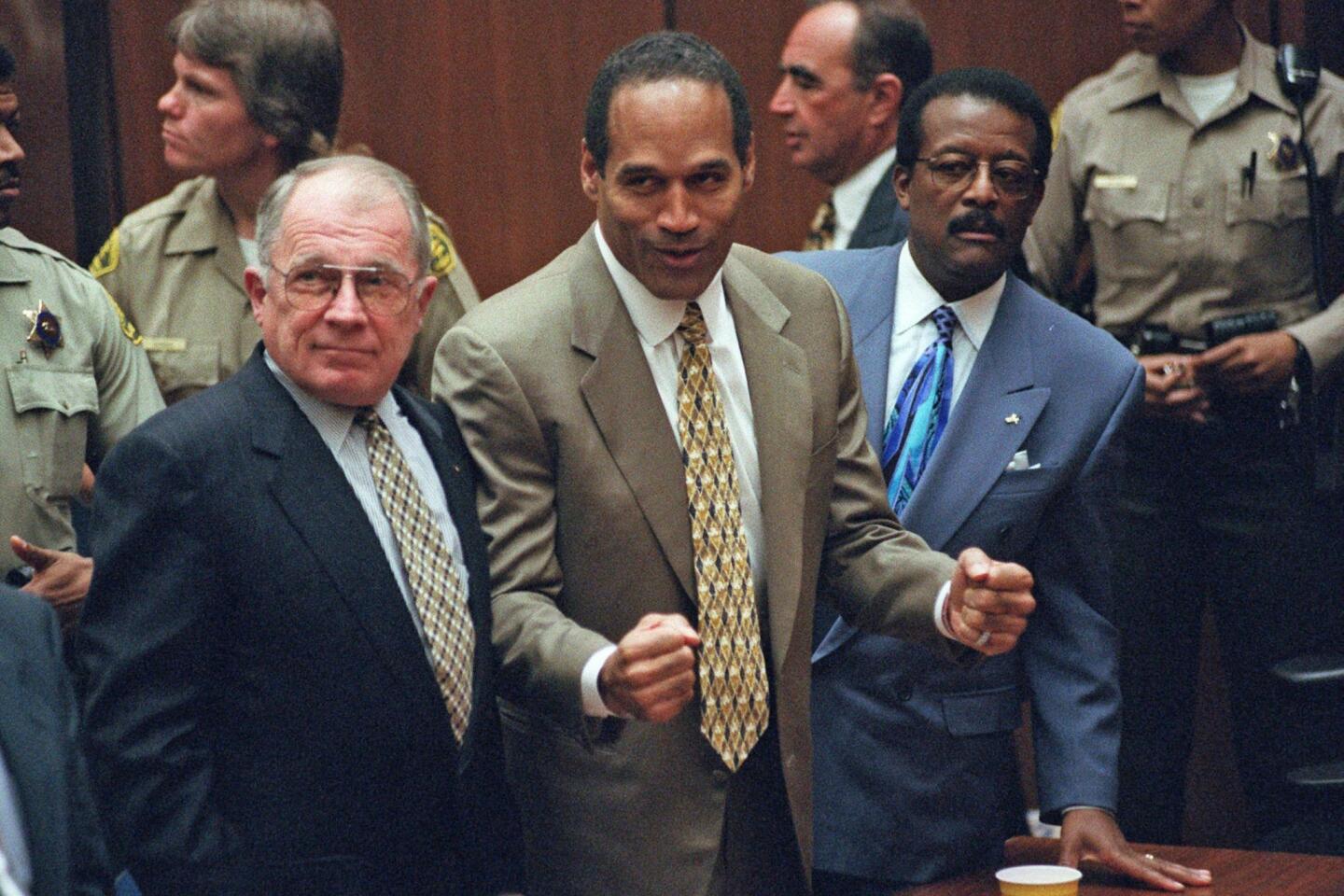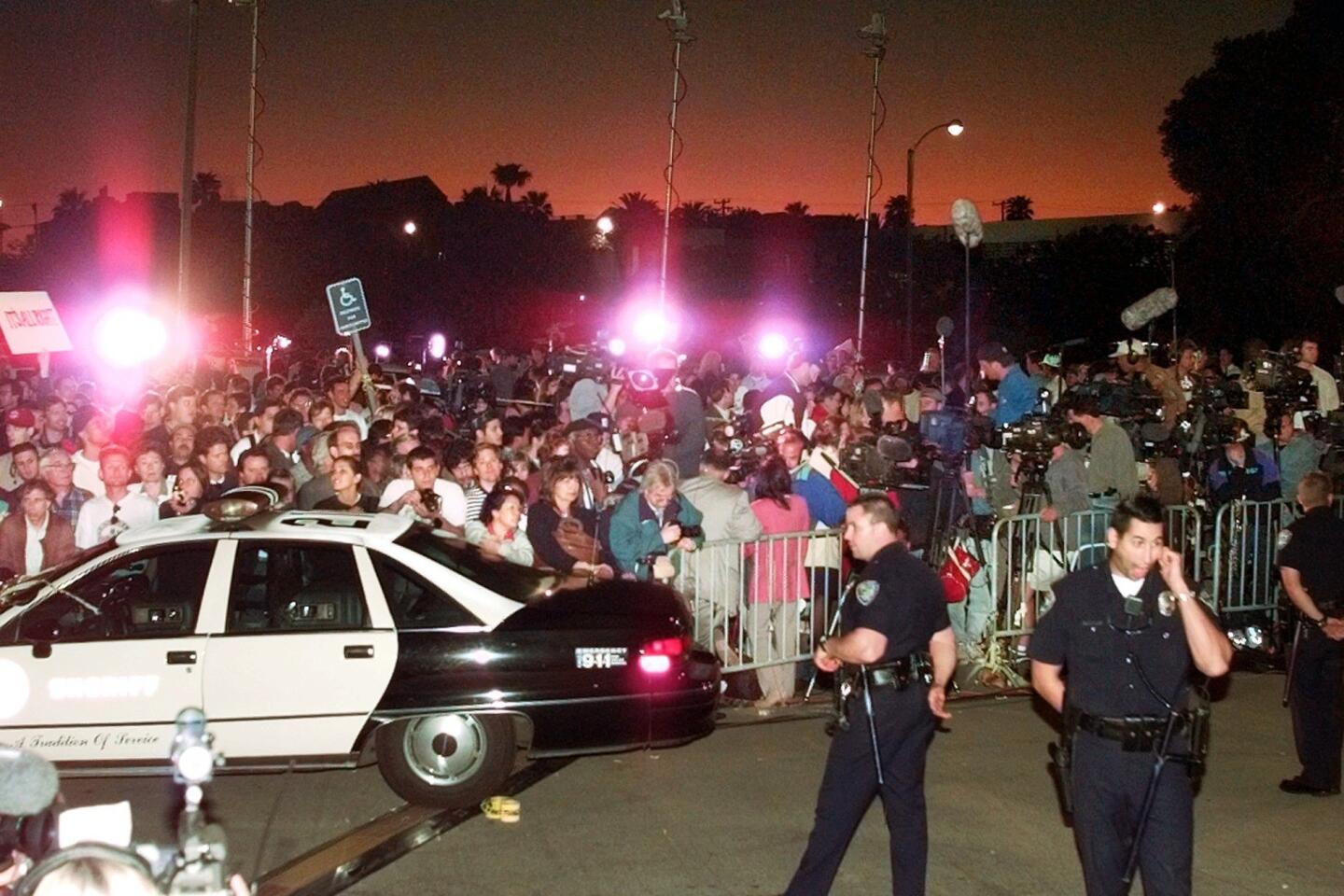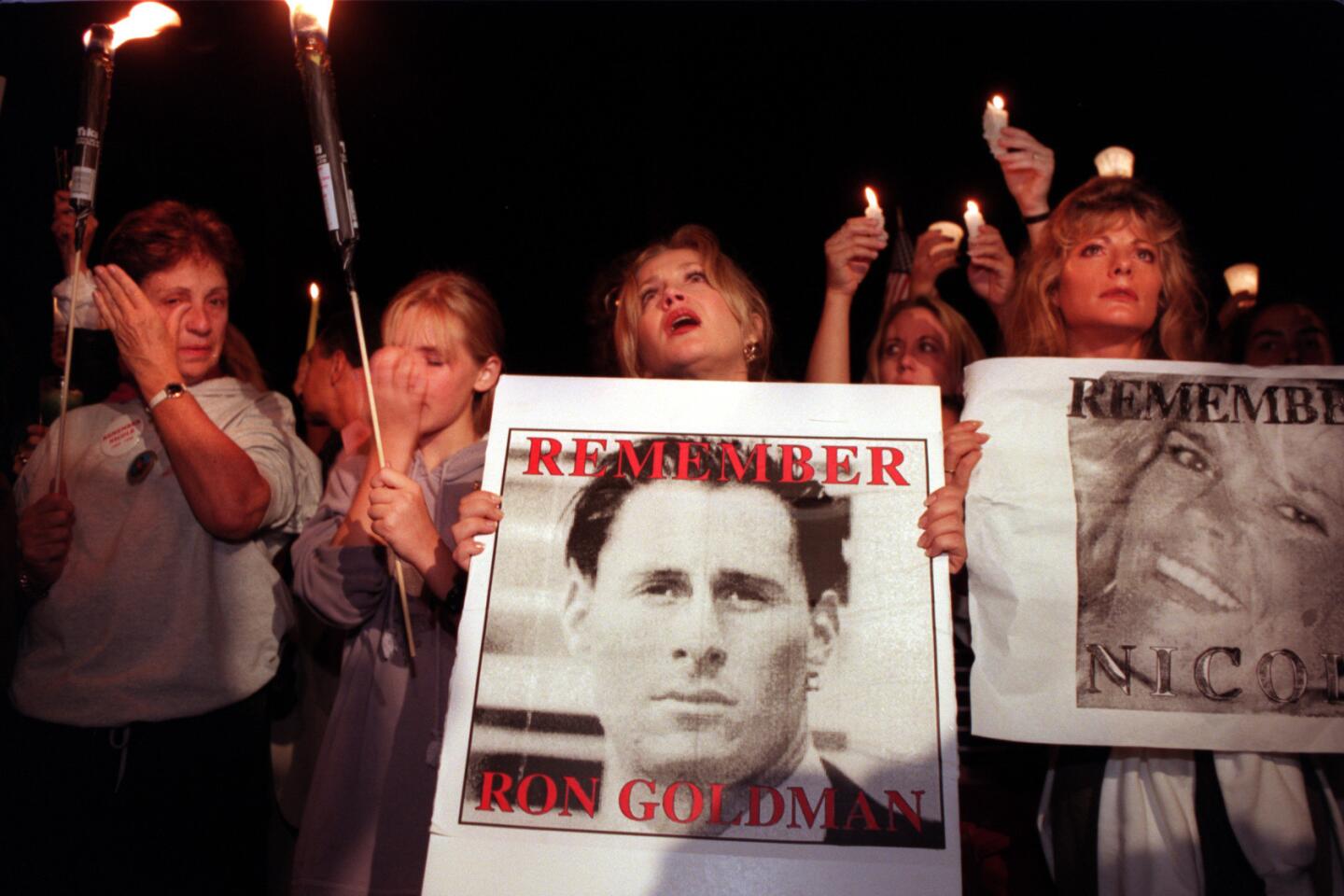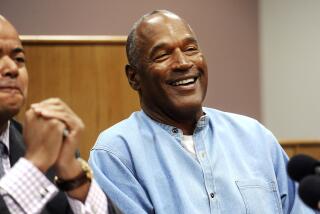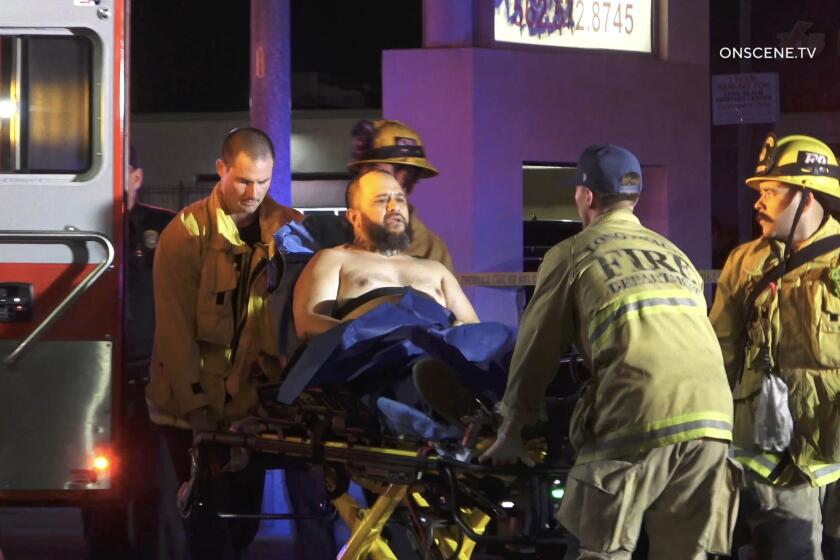O.J. Simpson case: Some who felt he was innocent now not so sure
The not-guilty verdict in the O.J. Simpson case generated much debate that was often divided along racial lines.
From the beginning, many blacks said they did not believe Simpson killed his wife and her friend. Many whites believed he did, even after he was found not guilty. A 1995 CNN poll underscored this racial divide.
Even a decade after the verdict, an NBC News poll found those divisions remained.
The Times asked several people around L.A. this week how their views of the case evolved over time.
Clyde Austin, 28, leaned against a tree as he chatted with friends at the Martin Luther King Jr. Park on Western Avenue this week. He remembers watching the televised verdict inside a classroom at Lenecia B. Weemes Elementary School.
“I thought the whole thing was crazy,” he recalled. “I had a teacher who said he was wrongly accused.”
Although Austin didn’t understand the trial as a child, his thoughts on the spectacle are similar to those around him as a child.
“He might have known what happened, but honestly, I don’t think he did it,” he said.
June Lawson waited for the 757 Metro bus near the intersection of Western Avenue and Martin Luther King Blvd. The 67-year-old retired administrative assistant lived in Silver Lake during the eight-month Simpson trial.
Back then, Lawson, who is black, believed Simpson didn’t have a hand in the killings. She noted that white people she talked to in Silver Lake agreed Simpson was guilty.
But Lawson said evidence shown during the trial made her wonder if Simpson knew who was behind the killings.
“I feel he got off,” she said. “It showed me something about our justice system.”
Moments before the Metro bus stopped, Lawson said in the end, only God can judge Simpson.
Steve Zych, 64, walked along the sidewalk outside of the Los Angeles County Museum of Art this week. The former employee of Northwest Airlines described Los Angeles as “racially divided” during the Simpson trial, noting the city was still healing from the riots after the beating of Rodney King.
Zych, who is white, said white friends believed Simpson was guilty, but black and Latino friends were more likely to believe he was innocent. During the legal saga, he tried to take a neutral position.
Now, he’s opening up about his thoughts. Zych believes Simpson might have had a hand in the murders or knew who did.
“But he had his day in court,” he said. “Sometimes, the innocent are convicted and the guilty are free.”
Janet Clark, a black retired principal, scraped up the last morsels of rice and eggs from her lunch at Jack’s Family Restaurant. She lived in Harvard Heights during the Simpson trial.
She talked to a friend that morning about the anniversary of the slayings. It prompted memories of conversations during the trial.
“It was the beginning of affluent black people being able to do what affluent whites have done: his money bought him representation to get him acquitted,” Clark said.
As for Clark, she doesn’t believe Simpson committed the killings.
“But he knows,” she said, sipping coffee. “I felt that then, and I do now.”
More to Read
Start your day right
Sign up for Essential California for news, features and recommendations from the L.A. Times and beyond in your inbox six days a week.
You may occasionally receive promotional content from the Los Angeles Times.
